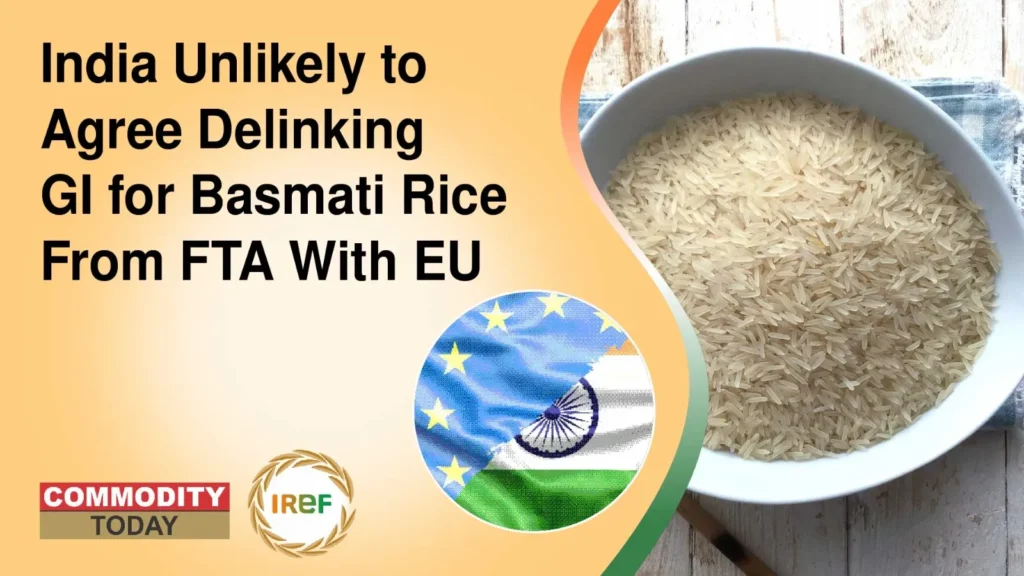Disputes over the trademark protection for basmati rice has further intensified between India & Pakistan. The dispute over the protected status of basmati rice is gradually adding to tensions between India and Pakistan, thus potentially posing challenges to New Delhi’s efforts to secure a trade agreement with the European Union. The dispute is not only delaying the trade talks with EU but also straining India Pakistan relations. Despite several efforts from the European Union India is unlikely to accept any proposal to decouple the issue of the protected Geographical Indication (GI) tag for basmati rice from the purview of the Indo-EU free trade agreement (FTA), say analysts.
India unlikely to agree delinking GI for basmati rice
In this context, S Chandrasekaran, a historian on basmati GI said that Recent reports highlighting concerns over recognising Pakistan’s application for GI tag to basmati rice are likely to complicate the FTA talks. The EU may adopt procedural or diplomatic bridges to avoid the dispute being a dealbreaker and hence look at decoupling it. Given the status of agriculture sector in India and the importance the Indian government gives to agriculture and dairy, New Delhi will be averse to delink the issue of GI tag for basmati rice from the FTA talks.
India has already waited seven years for its application to protect the term in the EU market to be recognised and is “growing impatient. The EU has kept pending India’s application for a basmati GI tag, which accords exclusive marketing rights, since July 2018. However, it was officially notified only in 2020. On the other hand, Pakistan sought a GI tag only in January 2024, and the EU republished it in April 2024. Since bot rival nations have applied for the GI tag, EU has been urging both India and Pakistan to come up with a joint application but was however rejected by India since Pakistan has included Indian regions in its application, and this questions the sovereignty of the country. It’s also worth to know that given the Strict MRL standards for pesticides in the European Union Pakistan is definitely not eligible and it is a major setback for the Pakistan’s Basmati exports to EU.
Market Size of $766 m
The EU basmati rice market size is $766 million. In 2024-25, India exported $237 million-worth of basmati rice to the EU. If basmati rice is excluded and EU wines and spirits continue to be in the FTA, India stands to lose $481 million in the GI products category. Among the GI products, the demand is higher for basmati rice. Other products may have the potential but will not lead to immediate grain in trade.
In addition, the EU is also protecting the local rice milling industry and curbing the import of basmati rice varieties under the import duty derogation.



